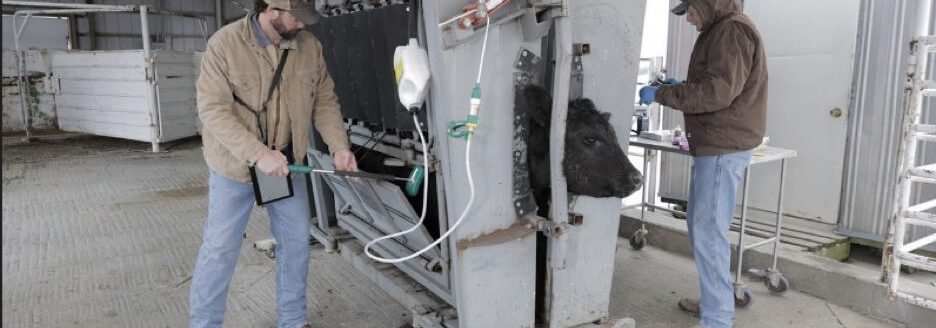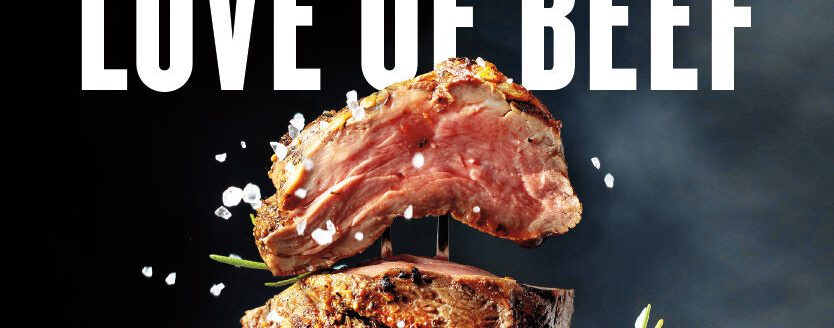Some meat delivery services do well in time of lockdown
Some specialty meat suppliers that do direct-to-retail business are finding that while the coronavirus takes away with one hand, it can give with the other.
As more and more states and cities issue lockdown orders, restaurants are closing, disrupting farms that supplied their food. But as consumers turn to specialty meat delivery services, some of those suppliers are finding their direct retail business is booming.
Fifth-generation Missouri farmer Todd Geisert’s retail meats are “flying out the door,” he told High Plains Journal, since the coronavirus-driven lockdown—even though his sales to St. Louis-area restaurants and delis have stopped, since most of them have temporarily closed their doors.
Well-known to St. Louis areas foodies, Todd and his wife Katie are a good example of entrepreneurial niche farmers who have tried to take control of their destiny by learning retailing. Together they operated a restaurant in Washington, a small town in Missouri close enough to St. Louis to attract weekend foodies, called Farm To You Market. It got positive reviews from local and regional food publications, but closed its doors in 2018. At the time, Katie Geisert told St. Louis magazine, “Had half the people supported us who said they supported us, they could have experienced what [St. Louis food critic David] Lowry was talking about.” Today, the Geiserts continue to supply about 12 St. Louis restaurants and a small grocery.
Niman Ranch
The coronavirus and subsequent boom in direct retail meat delivery services may bring at least some relief to small producers like the Geiserts.
The Geiserts sell a lot of their premium, naturally raised hogs to Niman Ranch, a network of about 750 small farms and ranches across the country that raise free-range livestock with no antibiotics. Niman Ranch farms supply beef, pork and lamb to premium retail outlets like Amazon Fresh and DeBragga Meats, which bills itself as “New York’s butcher” and offers dry aged Prime and Certified Angus beef.
It also supplies Butcher Box, a national subscription meat-delivery service. Butcher Box subscribers pay a monthly price for a choice of boxes that have a mix of premium frozen pork, beef and chicken products. Butcher Box has been so busy since the coronavirus hit that there is now a wait list to join it.
All Niman Ranch suppliers must adhere to a strict set of guidelines: no steroids, no antibiotics, free-range grazing (or large open pens for pigs), and only plant-based feeds. It’s a point of pride for Niman Ranch that it has more field agents inspecting farms than it has salespeople. Consumers say they can taste the difference and are willing to pay premium prices.
From wholesale to retail
Niman Ranch made its initial reputation among quality restaurants and the chefs whose shows it supplied. When Kay Cornelius, a cattle rancher and vice president of sales for Niman Ranch, joined the company in 2008, she said it recognized that it had to move more into direct retail sales in the wake of the 2008 Great Recession that severely the dented restaurant industry.
“After the recession, consumers weren’t going out as much, but when they did, they wanted a quality experience,” she said. “We knew we had to diversify our book of business.” She said something similar happened with grocers and retailers as well when it came to meat. “After 2008, consumers and markets embraced premium meats. We had initially supplied smaller, specialty grocers in the independent grocer and natural-foods space, but now we found ourselves talking to larger regional chains we never thought would be interested in us.”
Changing consumer behaviors
Cornelius believes the coronavirus lockdown will produce a similar shift in consumer tastes and preference that will outlast the crisis.
The lockdown is training consumer behavior in two major ways, she said. One is that people are becoming more comfortable with online ordering. It’s not an option in many cases during the lockdown, as some markets are now requiring consumers to either pick up groceries, or accept delivery. "In the last three weeks, the American public has learned that ordering online is an acceptable way to get groceries,” she said.
Packaging is key
The other change is that people are demanding more packaging. Cornelius said sales of produce at supermarkets are declining, as shoppers, leery of contamination, want packaged food touched as little as possible by human hands. She thinks this preference will long outlast the virus.
Niman Ranch had already been diversifying into retail before the crisis. “It was a question of moving from 10-pound bricks of ground beef for chefs, to 1-pound bricks for consumers,” she said. In response to that shift, and before coronavirus was even heard of, Niman Ranch began planning for a $30 million expansion of its production facility.
“We had begun considering that the retail side of our business could double,” said Cornelius. “We didn’t envision that it could triple in response to an event like this.” The expansion was completed in February of this year, and by mid-March it was running at full capacity. “The timing couldn’t have been better for us,” said Cornelius.
The facility will shorten the time from when a hog walks in to when frozen pork chops appear on your doorstep. The natural, organic values that Niman Ranch has always stood for and become famous for used to be opposed to “processing,” but new packaging technologies will actually preserve and extend those values and that branding identity, she said.
She said the time was right for facilities like this to explore a number of innovative packaging concepts. “Anything that is pre-packaged will be embraced by consumers,” she said. Niman Ranch is also looking to add more eco-friendly packaging offerings, particularly ones that include compostable and recyclable elements, to appeal to its sustainability minded customer base.
Like the rest of us, Cornelius hopes that the lockdowns will end soon, and that people will be able to go back to their daily lives, including dining out. “Our hearts are heavy for our restaurant partners,“ she said. Some won’t be able to withstand the prolonged shutdowns.
At the same time, Cornelius feels fortunate to be able to support so many farmers, ranchers and suppliers. The farms and ranches that supply Niman Ranch are continuing to move products, and the company said it has experienced no labor shortages. “Our plant workers feel they are contributing to a greater good.”
“Our goal throughout this crisis is and has been to keep our farmers whole, and to direct the products to where the consumers want them,” she said. “We can give farmers and producers a sense of safety in uncertain times.”
David Murray can be reached at [email protected].



